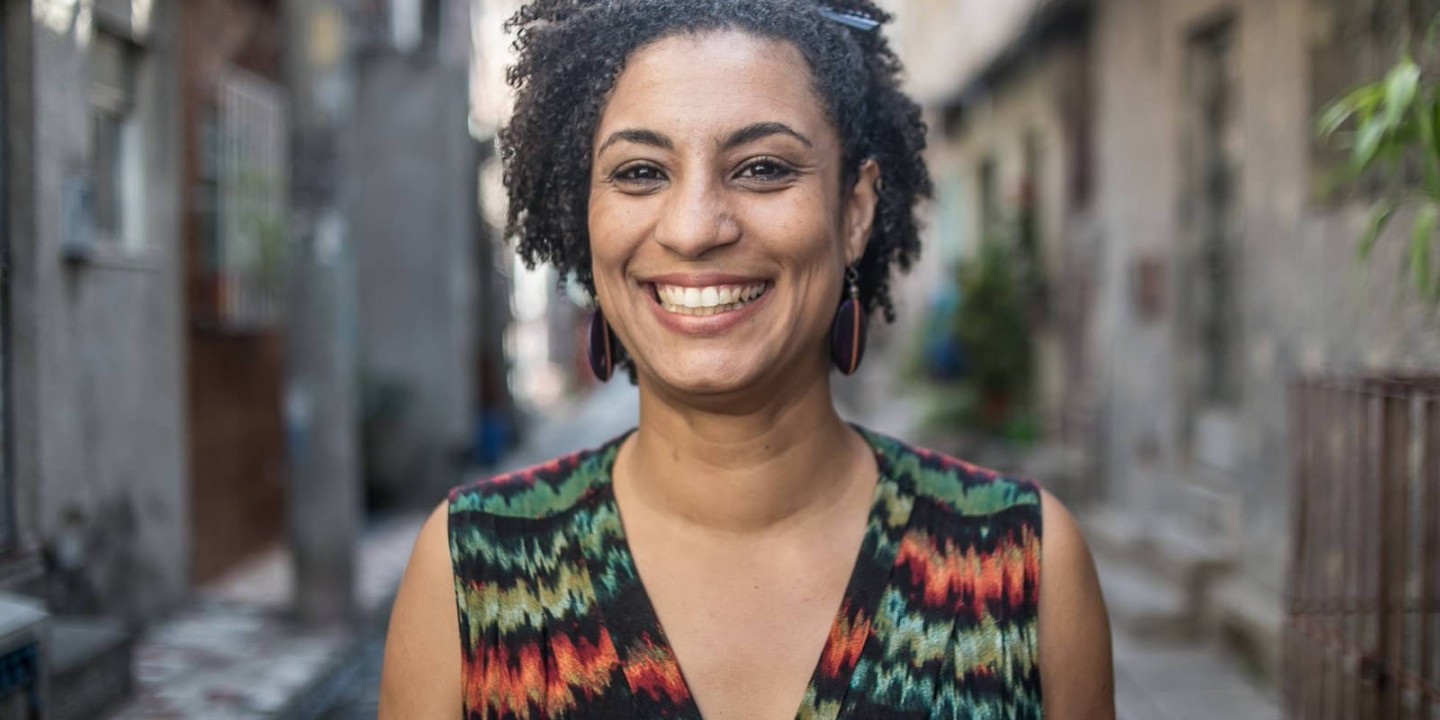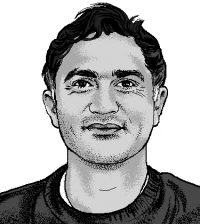Marielle Franco and the crucifixion of love
The Brazilian activist was killed by the same world that killed Jesus—a world that can’t bear love.

“Jesus died of being human,” Herbert McCabe preached in a Good Friday sermon. As the Dominican theologian writes elsewhere, “In the world we have made it is fatal to be human, to be really human, to be open and vulnerable to others, to be loving.” The prologue to John’s Gospel announces Jesus’ rejection by his own people, a rejection that will unfold in the subsequent pages. McCabe explains that this Jesus, God’s-love-made-flesh, is one “our world perceives as a threat and reacts accordingly.”
Jesus died of human love, a love so true, so vulnerable, so fierce, that he shook the foundations of our world built upon sin. So they killed him. So we killed him—the Gospel of John implicates everyone in the death of Jesus, the whole world contorted by the desire to get rid of him, because his love threatened the stability of our world and of our lives. Sin is the name of that force at work in the world, insinuating its way into us, that rejects love and crucifies the love-made-flesh.
The world that killed Jesus is the same one that killed Marielle Franco earlier this month in Brazil. After speaking at a public forum in her community, Franco was assassinated on her way home, a political execution in the streets. She was a member of the Rio de Janeiro city council—the only black woman among 51 members. She belonged to the party for socialism and liberation. She was married to a woman, raising a daughter. The talk she had just given, before her death, was about “Young Black Women Who Are Changing Power Structures”—that was the title of the forum.
Franco grew up in a nearby favela, a community marginalized from Brazil’s resources and power. As a single mom, she put herself through an undergrad university education and a master’s program. She was poor, she was black, she was a lesbian—and she became a representative for all the members of those communities, people who had no voice until they voted for her in a landslide election. As one Brazilian activist said, “She represented hope for so many women who never felt like they had a voice.”
The day before she was killed, Franco spoke out against the murder of a young man from her community. He was shot as he was walking home from a church meeting—Matheus Melo, a 23-year-old black man from a favela where police killed black men on the regular. “How many more must die for this war to end?” Franco wrote on Twitter after Melo’s death.
The war she was talking about was started by the president of Brazil, who empowered the national military police to “restore order” in Rio. In Franco’s community, this meant federal agents busting into homes and killing people. She was a vocal opponent of the president’s decision and the ensuing violence. She had recently been appointed to a municipal committee to hold the military police accountable. And now she’s gone, and thousands are mourning her death and wondering what all of this means for their own lives—who’s next? How many more must die for this war to end?
Franco loved her people, and that love threatened the men in power, the people with money and guns. The truth she spoke was too much for them to bear. They had to get rid of her in order to keep the life they wanted.
Our world today, where a conspiracy of evil forces orchestrated the assassination of Marielle Franco, is unmasked in the trial and death of Jesus in John’s Gospel—where Jesus is rejected because of the intensity of his love, a love that refused the power of this world. At Jesus’ trial we watch as the plotting and scheming unfold, the sinister tactics of rejection, the conspiracies of evil working through the crowds and Pilate and religious leaders and the disciples who have made themselves scarce, hiding to save their own lives. Sin is a whole system of evil hiding itself in the action of others, a will to destroy beyond anyone’s control—a labyrinthine bureaucracy where no one is to blame yet everyone is to blame at the same time.
There’s a grotesque absurdity to Pilate’s ordering his soldiers to torture Jesus—scourging him with a whip, slashes across his body. Thinking that the crowds would be satisfied with torture as punishment, Pilate tries to let him go. He says to crowds, the chief priests, and police: “I am bringing him out to you to let you know that I find no case against him.” But they shout, “Crucify him!” Pilate repeats himself, about the innocence of Jesus: “I find no case against him… Shall I crucify your king?... Take him yourselves and crucify him.” But the crowds persist with their demands to have Jesus killed, so Pilate finally lets them have him. The mob takes Jesus to Golgotha, where Pilate’s soldiers hang Jesus on a cross.
The story of the execution of Jesus involves one group handing him off to the other, one person shoving him into the hands of another—all of them culpable, all of them guilty of his death. All of us.
We want to let ourselves off the hook, and we try to by blaming others. There’s a long history of Christians using the back-and-forth in the trial narrative as a justification for their own anti-Semitism. But Jesus was a Jew, and his followers were Jews, and the early Christian movement was a Jewish movement that figured out how to welcome those of us who are Gentiles. For the long history of the church, European Christians led the way in blaming others for Christ’s death, blaming their Jewish neighbors, our siblings—all in an effort to absolve themselves.
But the Scriptures are meant to get inside of us, to get us to read the Bible as our story and see our lives in its pages. Where are we in John 19? Can we see ourselves perhaps in Pilate, maybe in the high priests, or in the faceless crowd or the disciples who stay away?
The issue at the heart of all of these questions is the identity of Jesus—who he was, and why everyone in the story is responsible for the death of this innocent man who embodied the love of God, without sin. The human one who loved without ulterior motives and without reserve. He is a human life translucent with God’s love, transparent with God.
And they kill him, we get rid of him, because our world can’t bear that kind of love. His life threatens to undo the lives we’ve worked so hard to make, to earn, to build. We are accustomed to this world that killed Jesus, to our world. Our communities need police, our nations need borders, our houses need locks, our identities need barriers.
“Forgive us our trespasses,” Jesus teaches us to pray, “as we forgive those who trespass against us.” Our world, our lives, our sense of self—we depend on laws against trespassing. And the forgiveness Jesus offers prophesies our undoing, because with Jesus we lose what we thought we could claim as our possession. Forgiveness is the unraveling of our lives, as God’s love knits us together into a new world where we can be our whole selves, who God created us to be, without having to reject—or let the world reject—parts of who we are.
There’s a boldness in Jesus before Pilate. He refuses Pilate’s power, because he knows who he is—that he is beloved by God, that God holds the world, and that no soldier or weapon or crowd can change that. When Pilate demands that Jesus give an account for himself, Jesus gives no answer—because his whole life is the answer. In his life, the eternal love of God opens up to the world. In his death, he entrusts himself and his people to God’s care.
The invitation of the gospel is that kind of boldness, like the boldness of Marielle Franco: to proclaim love with our lives, a power that stretches us beyond death and reaches toward resurrection.






